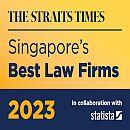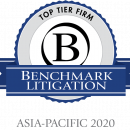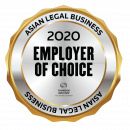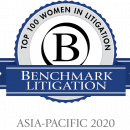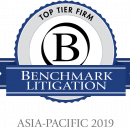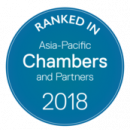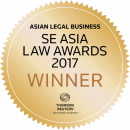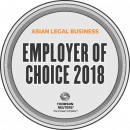Increased Corporate Governance Standards Under New Code
2018 Update of the Singapore Code of Corporate Governance
On 6 August 2018, the Monetary Authority of Singapore issued an updated Code of Corporate Governance (“CGC 2018”) and an accompanying Practice Guidance which explains and provides examples of the applications of the principles. The update follows the review of the previous Code of Corporate Governance (“CGC 2012”) in a bid to strengthen corporate governance practices.
Who does the CGC 2018 apply to?
The CGC 2018 applies to companies listed on the Singapore Exchange (“SGX”) on a comply-or-explain basis, while compliance with the Practice Guidance is voluntary. Also, some guidelines under the CGC 2012 which have been moved to the Singapore Exchange Listing Rules (“Listing Rules”) now require mandatory compliance unlike the previous comply-or-explain basis. For example, Guideline 2.3 under CGC 2012 relating to the circumstances in which a director is considered not independent is expected to be shifted to the Listing Rules and compliance will be mandatory.
When does it come into effect?
The revised code will apply to disclosures in annual reports covering the financial years commencing from 1 January 2019. The Listing Rules is expected to be changed to be consistent with the CGC 2018. Such changes to the Listing Rules are expected to come into effect on 1 January 2019, except for certain rules which will come into effect on 1 January 2022 primarily dealing with the re-appointment of Independent Directors (“IDs”) who have served 9 years or more.
Four Highlights of the CGC 2018
Generally, compared to the CGC 2012, there has been a reduction in the number of principles and provisions to improve clarity and to encourage the thoughtful application of the CGC. Four key amendments are highlighted below.
- There are now more stringent rules on Board Composition and Board Independence
New Listing Rules – Mandatory Compliance Required
- Directors must be re-elected every 3 years.
- IDs must comprise at least one-third of the Board.
- The relationship between the Chairman and the CEO must be disclosed if they are family members.
- Key information of directors must be disclosed on appointment or re-appointment of the directors.
- IDs should have no relationship with substantial shareholders (i.e. those who own 5% or more of the company). This has been lowered from 10%.
- Various objective tests of independence for directors have been shifted to the Listing Rules to reflect mandatory compliance instead of comply-or-explain.
- Directors’ independence is subject to a 9-year limit or a two-tiered voting process. Previously, the reappointment of Directors who served beyond 9 years was subject to “particularly rigorous review” by the board and not voting. Now, the two-tiered voting process involves: (a) a majority vote of all shareholders at the annual general meeting; and (b) a majority vote of all shareholders excluding shareholders who also serve as directors or CEO (and their associates).
Changes to the CGC 2012 – Comply-or-Explain
- If the Chairman is not independent, IDs are to comprise a majority of the Board. This is an increase from the previous threshold of “at least half”.
- The Board must now comprise of a majority of non-executive directors.
- The Board’s diversity policy and progress made towards implementing the board diversity policy, including objectives, must be disclosed in the company’s annual report.
2. Companies to disclose name and remuneration of related employees
The company must now disclose the names and remuneration of employees who are substantial shareholders or are immediate family members of a director, the CEO or a substantial shareholder of the company if the remuneration exceeds S$100,000 during the year in bands no wider than $100,000. This was not a requirement previously.
3. Annual report to include more information on Risk Management and Internal Controls
Under the Practice Guidance, the Board’s annual report should now include:
- A description of the principal risks facing the company and how they are being managed;
- An explanation of the company’s approach towards identifying, measuring and monitoring its key and emerging risks, and an elaboration of its approach towards the governance and management of these risks; and
- An explanation of how the Board has assessed the prospects of the company, over what period it has done so, and why the Board considers it to be appropriate to use that period.
These are added levels of detail on top of the previous requirement to provide information needed for stakeholders to make an informed assessment of the company’s risk management and internal control systems.
4. Increased time bar for former partners of audit firms from joining the Audit Committee
The AC now cannot comprise of former partners or directors of the company’s existing auditing firm or auditing corporation (a) within a period of two years commencing on the date of their ceasing to be a partner of the auditing firm or director of the auditing corporation. This was increased from the previous 12 months’ time bar.
Moving Forward
The CGC 2018 sets higher standards of corporate governance in many areas and the above should not be taken as an exhaustive list. Moving forward, companies and their directors should take the new rules into careful consideration when deciding on board composition and ensuring that disclosure requirements are satisfactorily met. This is particularly so after the SGX started the unprecedented practice of publishing a watchlist detailing directors who have been reprimanded by SGX and who may not be appointed as directors by any listed company without first seeking SGX’s guidance. Currently, 64 directors are on the watchlist.
Author:
Claudia Teo
Partner & Head of Corporate and Financial Services, Eversheds Harry Elias LLP
For more information, please contact our Business Development Manager, Ricky Soetikno@eversheds-harryelias.com
